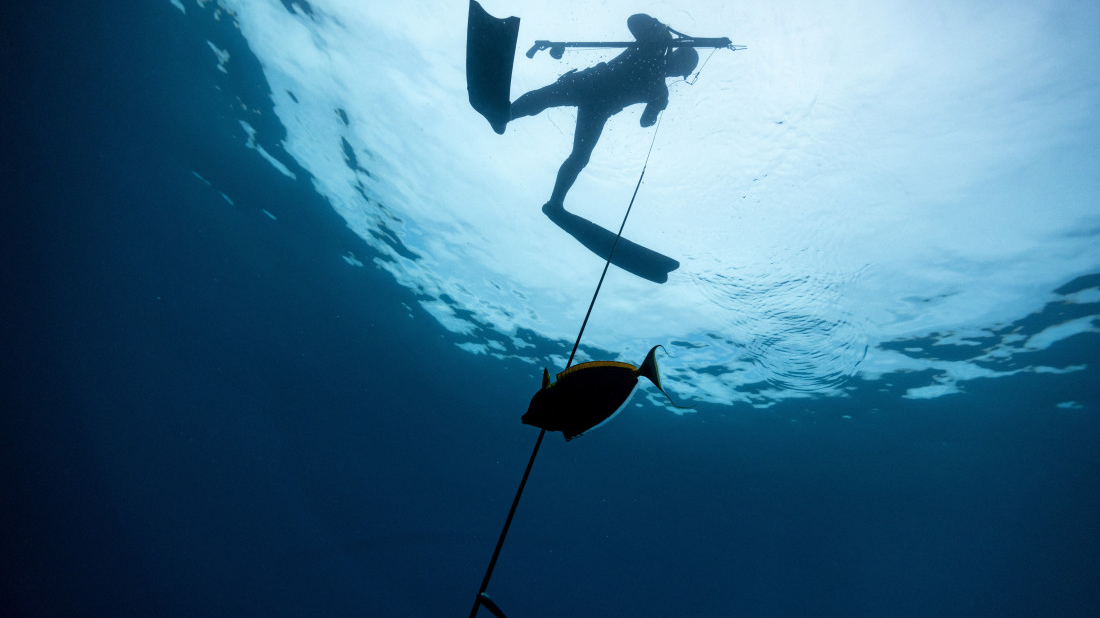AnewZ Morning Brief - 14 February, 2026
Start your day informed with AnewZ Morning Brief: here are the top news stories for the 14th of February, covering the latest developments you need to...

World Meteorological Organization found that ocean temperatures in the South West Pacific are increasing at up to three times the rate worldwide, while sea level rise in the region is outstripping the global average
Aboard a Gaualofa, a traditional Polynesian canoe, one of only seven of its type in the world, Leota Fitimaula Donna Aiono Le Tagaloa-Ioane looks out into the vast expanse of the Pacific Ocean, as she runs a workshop teaching and passing on knowledge of her Samoan maritime legacy.
For Aiono Le Tagaloa-Ioane, the Samoan Voyaging Society’s President, reviving and adapting her seafaring heritage is the way to navigate and mitigate the impacts of climate change; in doing so, conserving her island’s culture and environment.
“To go back to beaches and places where you've been, and then to see the beaches gone... we're seeing it all around us,” Aiono Le Tagaloa-Ioane said.
“To be resilient, to learn how to adapt, that's always been part of who we are as people.”
Samoa, with a population of about 218,000, will be the first Pacific small island state to host the annual Commonwealth Heads of Government Meeting (CHOGM), putting the spotlight on climate change.
A World Meteorological Organization report earlier this year found that ocean temperatures in the South West Pacific are increasing at up to three times the rate worldwide, while sea level rise in the region is outstripping the global average.
Over half of the Commonwealth's members are small states, many of them island nations facing the threat of rising sea levels caused by climate change. The leaders are expected to make a declaration on protecting the ocean, with climate change a key topic for discussion.
Having been raised on the beaches of Samoa, climate activist Brianna Fruean has grown up seeing the worsening and varying impacts of climate change – coral bleaching, loss of livelihoods, shoreline erosion – and has brought that message to climate conferences in New York and Glasgow. She said it was important for world leaders to see the frontlines of climate change.
“I would say it's alarming the fact, there's so much talk about climate action, but yet there's still so much inaction,” Fruean said, who also pointed to the contradictions coming out from big emitting countries like the United Kingdom, Australia and Canada, and their commitments to the Paris agreement.
“You have a look at their plans of expansion of coal, oil and gas. Their expansion plans don't make sense with their commitment to the 1.5 degree,” she said.
President of Samoa’s Conservation Society, James Atherton, said that climate talks need to move beyond rhetoric and focus on action.
“I think it's hard for Western countries to actually dodge action when small countries like Samoa are doing so much themselves,” he said.
Europe heads into the Munich Security Conference, on Friday (13 February), amid deepening unease over U.S. policy, as President Donald Trump’s hard-line stance on defence, trade and territory fuels doubts about Washington’s long-term commitment to transatlantic security.
“Respected and feared globally,” U.S. President Donald Trump told troops at Fort Bragg on Friday, framing America’s renewed strength as a backdrop to mounting pressure on Iran amid stalled nuclear talks.
Türkiye and Greece signalled renewed political will to ease long-standing tensions during high-level talks in Ankara on Wednesday (11 February). Maritime borders, migration and trade topped the agenda as both leaders struck a cautiously optimistic tone.
Stalled U.S.–Iran talks and mounting regional tensions are exposing a growing strategic rift between Washington and Tel Aviv over how to confront Tehran, political analyst James M. Dorsey says, exposing stark differences in approach at a critical moment.
Dubai-based global ports operator DP World said on Friday that its long-serving chairman and chief executive, Sultan Ahmed Bin Sulayem, has stepped down following mounting pressure linked to alleged ties to disgraced financier Jeffrey Epstein.
The administration of U.S. President Donald Trump on Thursday (12 February) announced the repeal of a scientific finding that greenhouse gas emissions endanger human health, and eliminated federal tailpipe emissions standards for cars and trucks.
Tropical Cyclone Gezani has killed at least 31 people and left four others missing after tearing through eastern Madagascar, the government said on Wednesday, with the island nation’s second-largest city bearing the brunt of the destruction.
Rivers and reservoirs across Spain and Portugal were on the verge of overflowing on Wednesday as a new weather front pounded the Iberian peninsula, compounding damage from last week's Storm Kristin.
Morocco has evacuated more than 100,000 people from four provinces after heavy rainfall triggered flash floods across several northern regions, the Interior Ministry said on Wednesday.
Greenland registered its warmest January on record, sharpening concerns over how fast-rising Arctic temperatures are reshaping core parts of the island’s economy.
You can download the AnewZ application from Play Store and the App Store.

What is your opinion on this topic?
Leave the first comment